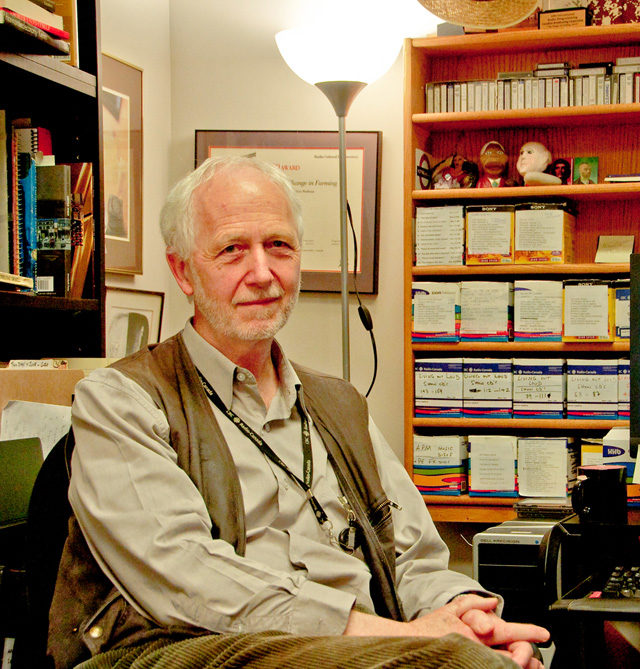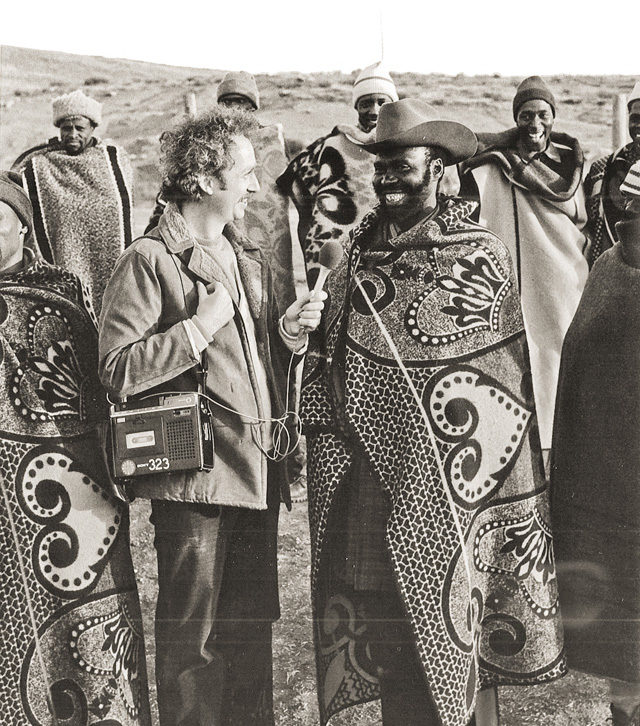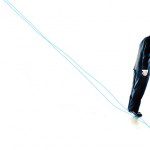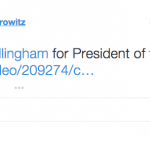Endangered species: why we’ll miss radio documentaries when they’re gone
Steve Wadhams proves that despite budget cuts and declining audience members, storytelling through sound is still powerful
Steve Wadhams is editing and layering the voices for a CBC radio documentary about the persecution of Italian Jews during the Second World War for his show, Living Out Loud. His office in the Canadian Broadcasting Centre in Toronto is small and the door is open. The foot traffic of radio colleagues out in the hall is a reminder of what’s happening in the here and now, particularly as Wadhams loses himself in the words and voices of people speaking to him from the colour-coded soundtracks on his computer screens.
There are not many like him left. He becomes wistful when asked why he is one of the last radio documentary makers. “It’s not valued somehow or other. Not enough anyway,” he says. “This can die, you know. Easily. Roman Empire died. British Empire died. Everything dies unless you nurture it.”
Although budgets are shrinking and audience numbers in radio have fallen over the years, Wadhams still believes radio docs matter because they take us to new places and connect us emotionally by letting us hear how people experience their lives. “The aim is to take the listener into somebody else’s world,” he says. “Let them spend some time in that world and begin to have some kind of understanding of what it’s like.”
According to Matthew Ehrlich, a journalism professor at the University of Illinois and author ofRadio Utopia: Postwar Audio Documentary in the Public Interest, radio lends itself to effective documentary storytelling. “Radio is a very intimate medium,” he says. “Even when it’s being broadcast to millions of people, it’s still experienced very much one-on-one.” In the 1970s, ’80s, and even into the ’90s, there was ample financial and technical support for radio documentaries at Canada’s national broadcaster. But the production budget for Wadhams’s weekly one-hour program is only $12,000 a year. Still, he has a lot of freedom to do what he wants. He’s paying a freelancer almost half of that budget to co-produce the episode he’s working on: “The Good Italian?” New documents have surfaced and he feels strongly that the story should be told.

“It’s not valued somehow or other,” Steve Wadhams says about radio documentaries (PHOTO: KRYSTYNA HENKE)
Wadhams, who has a British accent even after living in Canada for 40 years, is a tall, lean man. In the mid-’70s, he worked on As It Happens with Barbara Frum and Mark Starowicz. Later, he was one of the original producers at Sunday Morning, a weekly three-hour program that he calls “documentary heaven.” It eventually morphed into The Sunday Edition. Wadhams then tried TV for three years, including two as a documentary producer at The Journal. In 1990, he went back to radio, eventually producing Outfront, a program of personal storytelling by ordinary people that ran until 2009. Living Out Loud incorporates similar elements, notably people telling their own stories. Carol Penner, whose account of helping a stranger through her kidney donation recently aired on the show, says, “He is such an inquiring person with such a kindness about him that he opens people up. I felt I could trust him to tell my story.”
Internationally recognized for his radio docs, Wadhams has received an array of awards, including the prestigious Prix Italia. Ken Puley, senior media librarian at CBC English Radio Archives, remembers being impressed by the sheer breadth of “Africa Week,” an award-winning series that ran for four hours a night for a week in 1980. (Wadhams worked in central Africa before coming to Canada.) “He’s got amazing energy,” Puley says. And Bernie Lucht, former executive producer of Ideas, a show Wadhams contributed to, says he brings a uniquely dramatic imagination to his documentaries. “I think he’s utterly brilliant.” Wadhams, who also gives radio storytelling workshops, emphasizes that stories are not information. They’re meant to make people feel something “below the neck,” he says. “Life is complex. It’s tragic. It’s funny,” says Randall Barnard, a former senior manager at CBC Radio. “And a great documentary tugs on those heartstrings.”
Interested in the stories people tell when they’re in extreme situations, Wadhams creates a sense of place by following people around and recording the sounds as they happen. To understand him, you have to know how he feels about music. “That defines how he hears radio,” says Alan Guettel, former colleague and senior producer of Dispatches, which CBC cancelled in 2012. Wadhams, who at one point wanted to be a professional French horn player, sings in a choir. In his documentaries, he finds music in the real-life scenes he records. And he applies musical concepts such as cadence, rhythm, pacing and pitch, infusing the productions with a dramatic feeling. Indeed, he is much like a composer when he edits and layers the various elements of voice and actuality.
Barnard, who also started at CBC Radio in the mid-’70s, recalls the early days: “We were blessed, Steve and I, when we came into the organization at that time,” he says. Programs were available for some great long-form radio productions. This was supported by a management structure that understood how important it was to have those programs. But some years later, when Barnard joined the radio management team in Toronto, he says, “We had a 40 percent cut to staff and it was brutal. Absolutely brutal.” He had to go across the country, he says, and “deliver the message to way too many people.”

In 1980, as part of the 20-hour CBC Radio Special, “Africa Week,” Steve Wadhams travelled to southern Africa and interviewed a man in Lesotho, who was trying to sell an ox to help pay for his university studies (PHOTO: COURTESY OF STEVE WADHAMS)
Documentaries are expensive to produce and, management, looking to be competitive in the marketplace, wanted a larger audience and broader demographic. But, as Guettel points out, since its inception in 1936, CBC’s mandate has been to bring Canadians together by offering them stories about people from all regions and all walks of life. Radio documentaries did just that.
Feature radio documentary “doesn’t have to die,” Wadhams says. The resources are in place so it’s just a question of redirecting a bit of money. He’d like to see the art form continue and pass on his skills. “Mentoring a few people, big deal. It’s not really expensive at all.”
But at the beginning of this year, Living Out Loud went on hiatus. Wadhams hopes it will start up again in the fall. In the meantime, he is taking existing documentary material and recycling it for In the Field, a show without a budget. “He’s not appreciated,” says Guettel. “Otherwise, they’d give him money and give him a real show.”
Krystyna Henke was the Visuals Editor for the Spring 2014 issue of Ryerson Review of Journalism.












































